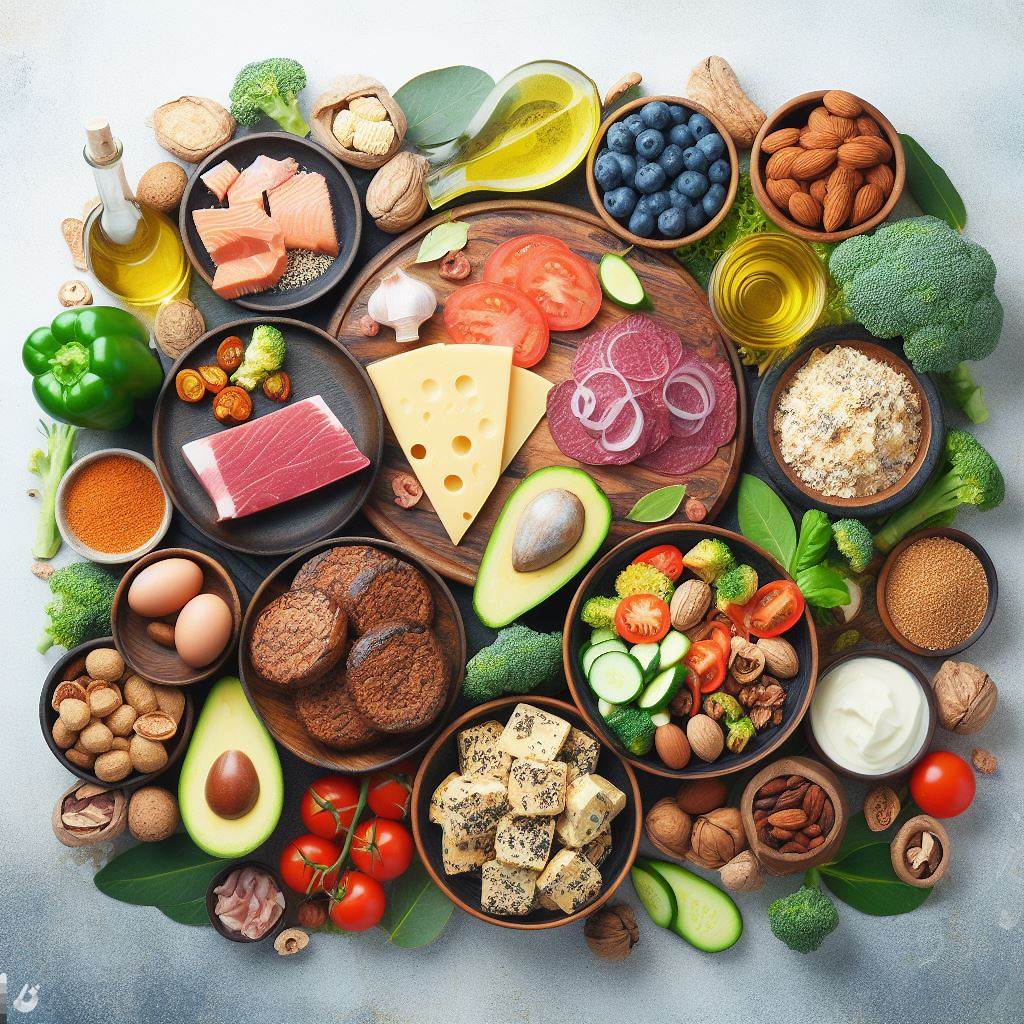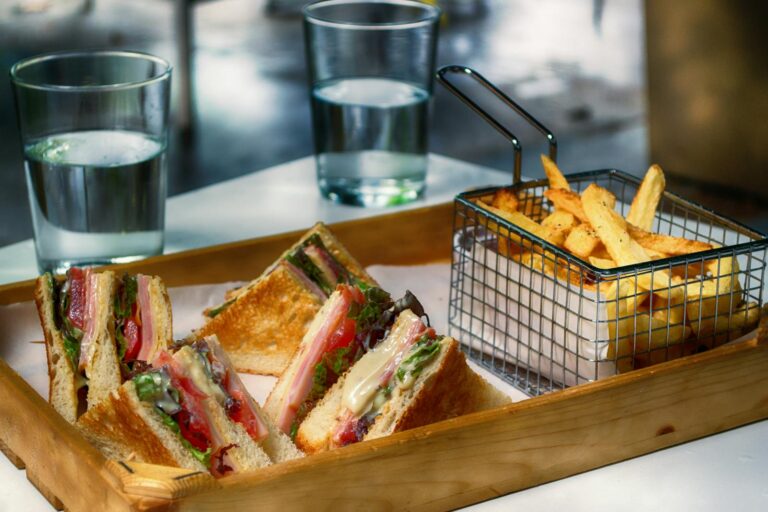
Confused about carbs? Feeling overwhelmed by the keto lingo? Throw out the guesswork and dive into a clear, comprehensive guide designed to demystify the keto diet for beginners. This isn’t just another food list; it’s your passport to unlocking the world of keto with confidence.
Forget endless scrolling and conflicting information. We’ve done the research, separating the keto heroes from the hidden villains, so you can navigate the grocery aisles with ease. This guide is your one-stop shop for understanding what to eat, what to avoid, and why, empowering you to fuel your keto journey with delicious, satisfying meals.
Ready to ditch the diet blues and embrace the keto revolution? Let’s unlock the secrets of ketosis, one bite at a time!
Here’s what you can expect:
- Crystal-clear explanations: No more keto jargon! We break down the science in simple terms, so you understand how food impacts your body and fuels your ketosis journey.
- Detailed food lists: We’ve got your back, from keto-friendly staples to surprising hidden carbs. Learn what to stock your pantry with and what to leave on the shelf.
- Easy-to-follow tips and tricks: Forget the keto myths! We’ll equip you with practical advice for meal planning, snacking smart, and staying motivated on your keto path.
- Delicious recipe inspiration: Keto doesn’t have to be bland! We’ll share mouthwatering ideas to keep your taste buds happy and your body fueled.
So, grab your fork and get ready to transform your approach to food and unlock the potential of keto! This guide is your launchpad to a healthier, happier you. Let’s conquer the grocery store, conquer ketosis, and conquer your goals!
What to Eat on Keto:
- Low-Carb Vegetables: Leafy greens, broccoli, cauliflower, zucchini, and bell peppers are excellent choices due to their low carbohydrate content.
- Eggs: Versatile, nutritious, and low in carbs, eggs are a staple for many on the keto diet.
- Healthy Fats: Avocados, olive oil, coconut oil, and nuts and seeds in moderation are rich sources of healthy fats suitable for keto.
- Nuts and Seeds: Almonds, walnuts, chia seeds, and flaxseeds are low in carbs and high in healthy fats and fiber.
- Berries (in moderation): While fruits are generally higher in carbs, berries like strawberries can be consumed occasionally in small portions.
- Dairy (in moderation): Full-fat options like cheese, yogurt (unsweetened Greek), and cream can be included carefully due to their moderate carb content.
- Peanut Butter and Mayonnaise: Opt for natural peanut butter without added sugars and mayonnaise without high-carb additives.
- Coffee and Diet Soda: Unsweetened coffee and diet sodas can be consumed in moderation for many people on the keto diet.
Foods to Be Cautious About:
- High-Carb Vegetables: Carrots, corn, and potatoes (including sweet potatoes) contain higher levels of carbs and should be consumed sparingly, if at all.
- Fruits: While nutrient-dense, fruits like watermelon and higher-sugar fruits like bananas should be limited due to their carb content.
- Grains and Legumes: Oatmeal, quinoa, and most types of bread are high in carbs and not typically included in a strict keto diet.
- Processed Foods: Foods with hidden sugars and carbs, such as certain sauces and dressings, should be avoided or carefully chosen.
Alcohol on Keto:
Pure spirits like vodka have zero carbs and can be included in moderation. However, mixers containing sugar or carbs should be avoided.
Weight Management on Keto:
While many experience weight loss due to fat burning in ketosis, excess calorie intake can still lead to weight gain on the keto diet. Moderation and mindful portion control remain essential.
Let’s make it even more simple, organized and summarized
Eat Up:
Proteins:
- Meat and poultry: Opt for grass-fed or free-range options like beef, lamb, pork, chicken, and turkey.
- Fish and seafood: Fatty fish like salmon, tuna, mackerel, and sardines are rich in healthy fats and omega-3s.
- Eggs: A versatile and affordable protein source, perfect for breakfast, lunch, or dinner.
- Full-fat dairy: Cheese, yogurt, and heavy cream offer protein, healthy fats, and calcium. Choose grass-fed and full-fat options for optimal benefits.
Fats:
- Healthy oils: Olive oil, avocado oil, coconut oil, and MCT oil are your go-to sources for healthy fats, keeping you satiated and fueling ketosis.
- Nuts and seeds: Almonds, walnuts, macadamia nuts, chia seeds, and pumpkin seeds provide protein, fiber, and healthy fats, making them excellent snacking options.
- Avocados: Loaded with fiber, healthy fats, and potassium, avocados are a keto staple and a delicious addition to any meal.
- Dark chocolate: Choose at least 70% cacao content for a satisfying treat rich in antioxidants and healthy fats.
Vegetables:
- Non-starchy vegetables: Leafy greens, broccoli, cauliflower, zucchini, bell peppers, and mushrooms are low in carbs and high in nutrients, making them essential keto companions.
- Cruciferous vegetables: Brussels sprouts, kale, and cabbage boast powerful antioxidants and fiber, supporting your health and ketosis goals.
- Olives: A great source of healthy fats and a delicious snack or addition to salads.
Limit or Avoid:
Sugary foods:
- Candy, cookies, pastries, and desserts: These are loaded with sugar and carbohydrates, throwing your body out of ketosis.
- Fruits: Most fruits are high in natural sugars, with some exceptions like berries in moderation.
- Starchy vegetables: Potatoes, corn, peas, and beans are high in carbs, best avoided on strict keto.
Grains and starches:
- Bread, pasta, rice, and cereals: These are major sources of carbohydrates, disrupting ketosis.
- Flour tortillas, wraps, and crackers: Opt for low-carb alternatives like lettuce wraps or keto bread products.
Processed foods:
- Packaged snacks, frozen meals, and fast food: These are often loaded with hidden sugars, unhealthy fats, and refined carbohydrates.
- Sugary drinks: Soda, juice, and sports drinks are packed with sugar and can kick you out of ketosis.
Additional Tips:
- Read labels carefully: Pay attention to net carbs and sugar content to make informed choices.
- Plan your meals and snacks: This helps avoid unhealthy temptations.
- Stay hydrated: Water is your best friend on keto.
- Listen to your body: Eat when hungry and stop when full.
- Connect with the keto community: Find support and inspiration from others on the same journey.
Conclusion:
Understanding what to eat and what to avoid on a keto diet is key to success. Emphasizing whole, nutrient-dense foods while monitoring carbohydrate intake is crucial for maintaining ketosis. Remember, individual carb tolerance varies, so tailor your diet to suit your body’s needs and consult a healthcare professional or registered dietitian for personalized guidance.




